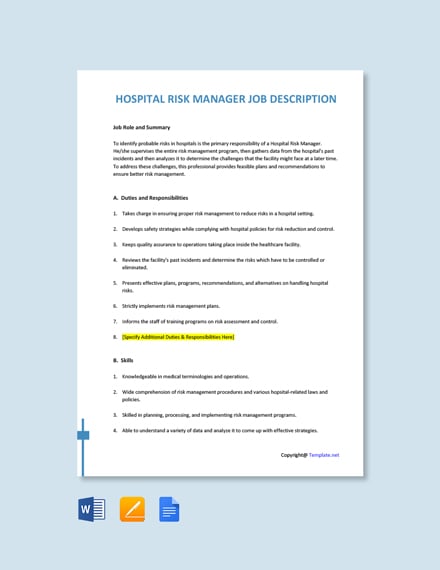


While healthcare organizations have significantly reduced risk over the past decade by improving patient safety, quality, and care outcomes, risk management is becoming more complex than ever.Ĭosts are increasing as healthcare organizations incorporate new technologies like telehealth platforms. Insurance, claims management, event/incident management, patient safety, provider quality management, compliance, enterprise risk management, third-party risk management, and more all fall under the risk management umbrella. Risk managers in the healthcare industry are trained to identify, evaluate, and mitigate risks to patients, staff, and visitors. Risk management cuts across a health system’s entire ecosystem, impacting everything from patient safety and compliance to operations, HR, and operating margins. The Role of Risk Management in Healthcare While protecting the organization’s bottom line is also important to preserve the organization’s viability, nothing takes priority over preventing harm to people. Speed, accuracy, and efficiency – or lack thereof – in responding to risks can mean the difference between life and death for patients, staff, or visitors. What sets healthcare risk management apart from that function in other industries is that lives are literally at stake.

Risk management in healthcare is the process of identifying threats that could harm the organization, its patients, staff, or anyone else within the facility.


 0 kommentar(er)
0 kommentar(er)
